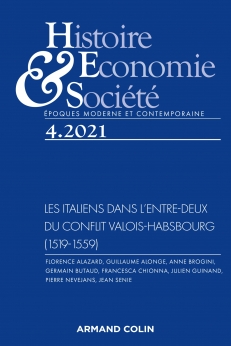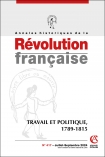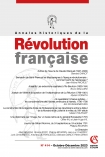
HISTOIRE, ECONOMIE ET SOCIÉTÉ (4/2021)
Pour acheter ce numéro, contactez-nous
Recevez les numéros de l'année en cours et accédez à l'intégralité des articles en ligne.
À partir du XVe siècle, et plus encore à la faveur des guerres d’Italie, Mantoue est une véritable plaque tournante de l’information et de la diplomatie européennes. Souvent réduite sous le marquisat de Francesco (1484-1519) à une incapacité à s’engager pour l’une ou l’autre des grandes puissances qui s’opposent dans la péninsule, la politique mantouane de Federico Gonzaga (1519-1540)manifeste les ambiguïtés de ces choix : comment rester acteur d’une ligue anti-impériale alors que le marquis est feudataire de l’empereur ? Les archives de Mantoue, et principalement la correspondance de la chancellerie avec les ambassadeurs et envoyés du marquis, permettent de mesurer la politique de l’entre-deux conduite par Federico, soutenue par les agents du prince, et en particulier Giovanni Battista Malatesta qui séjourne longuement à Venise et doit justifier une politique qu’il peine parfois à expliquer.
From the 15th century, and even more so during the Italian Wars, Mantua became a hub of European information and diplomacy. Often reduced, under the marquisate of Francesco (1484- 1519), to its inability to choose one or other of the great powers opposing each other in the peninsula, the Mantuan policy of Federico Gonzaga (1519-1540) manifests the ambiguities of these choices : how can one remain a player in an anti-imperial league while being the emperor’s feudal servant ? The Mantuan archives, and mainly the chancellery’s correspondence with the ambassadors of the marquis, allow us to measure the politics of the in-between led by Federico, supported by the prince’s agents, and in particular Giovanni Battista Malatesta, who stayed in Venice for a long time and had to justify a policy that he sometimes found difficult to explain.

